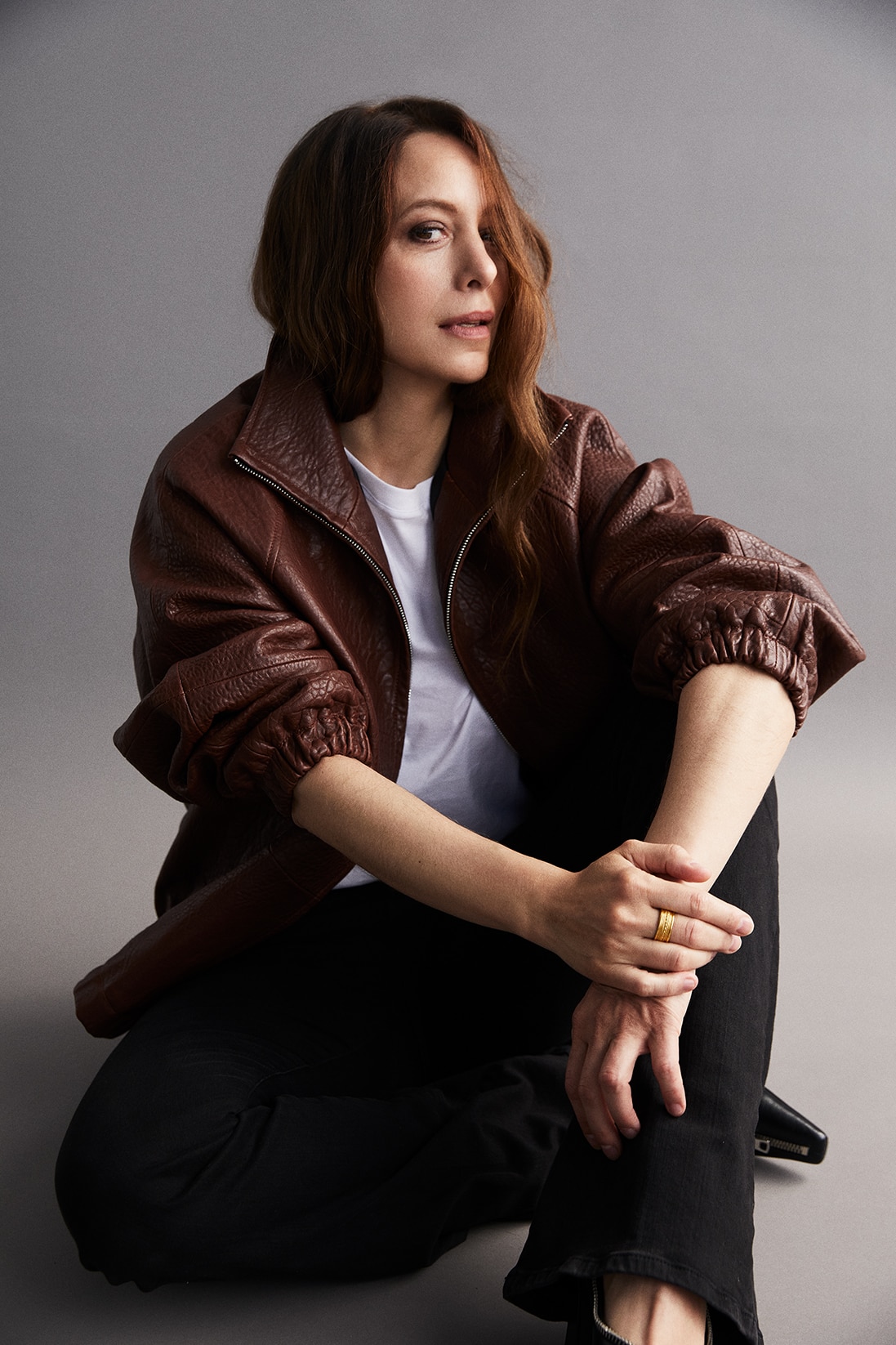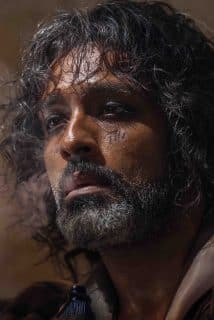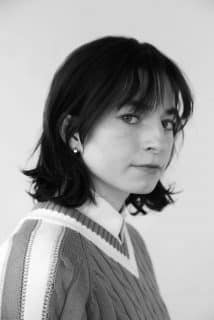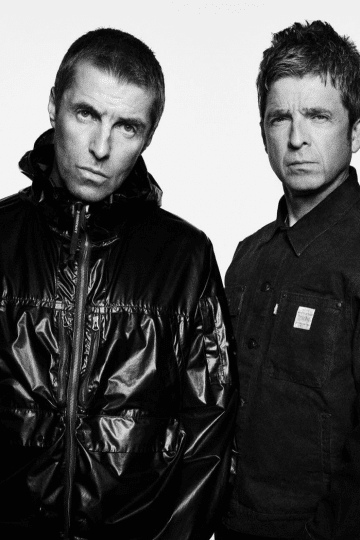Jodhi May on Dune: Prophecy and the “nightmare” lack of women in TV
Culture
Jodhi May is starring in Dune: Prophecy, which is leading the way for an industry still unable to offer anything like gender equality
Dune: Prophecy is currently sweeping across our screens, as gloomily epic and dazzlingly unpredictable as Denis Villeneuve’s films while also delving into new territory.
Set 1000 years before the birth of Paul Atreides, when the Harkonnen were still living off hairy whale (that’s the best I can describe the creatures) meat on a frozen tundra, it centres around the growth of the Sisterhood, led by Emily Watson’s Valya.
Thus far in the run, it is proving itself to be some dream mash up of Dune and Game of Thrones, with a strong female-led cast and a level of intrigue, interesting things about AI – the series is set after a war with the machines where technology is supposed to be now under strict control – and plotting that gives it a MacBeth edge. Speaking of which, the Lady MacBeth in this piece is Empress Natalya played by Jodhi May, who we managed to speak to for this interview.
Jodhi is quite simply one of the finest actors around, and has been since she first hit the big screen aged 12 in anti-apartheid drama A World Apart (1988), for which she become the youngest ever winner of the Cannes Best Actress award.
You’ll know her from The Last of the Mohicans, from Tipping the Velvet, Small Axe: Mangrove, and the recent Renegade Nell as well as, if you’re one of those people who leaves the house, a serious theatre CV. Empress Natalya is a juicy part indeed, a clever woman playing her husband the Emperor (Mark Strong) like a fiddle as she tries to forces him into alliances to suit the advantage of his (and her) throne while standing against the Sisterhood, who Natalya alone seems to reject, until she finds an ally in the deadly (and worm infused) Desmond Hart.
Jodhi told us what it’s like to work among these big productions and also gave us her thoughts on women in the film and TV industry, where progression sounds as slow as turning rock into sand….
Hi Jodhi, where are you now?
I am in London, but it’s kind of feeling a bit more like Moscow.
Where did you film the series?
In Budapest. Just outside the city. Strangely, I think Budapest is one of the cities I’ve shot most in. The first time I shot there was 1989 and it has obviously changed so much since then. It was just kind of coming out of a huge political hangover after the turmoil of the Sixties and it’s an extraordinary city. It has such an incredible history.
It’s like the Barcelona of eastern Europe. Some of the best cinema is Hungarian. Bela Tarr is a hero of mine. I think he’s one of the most incredible directors ever.
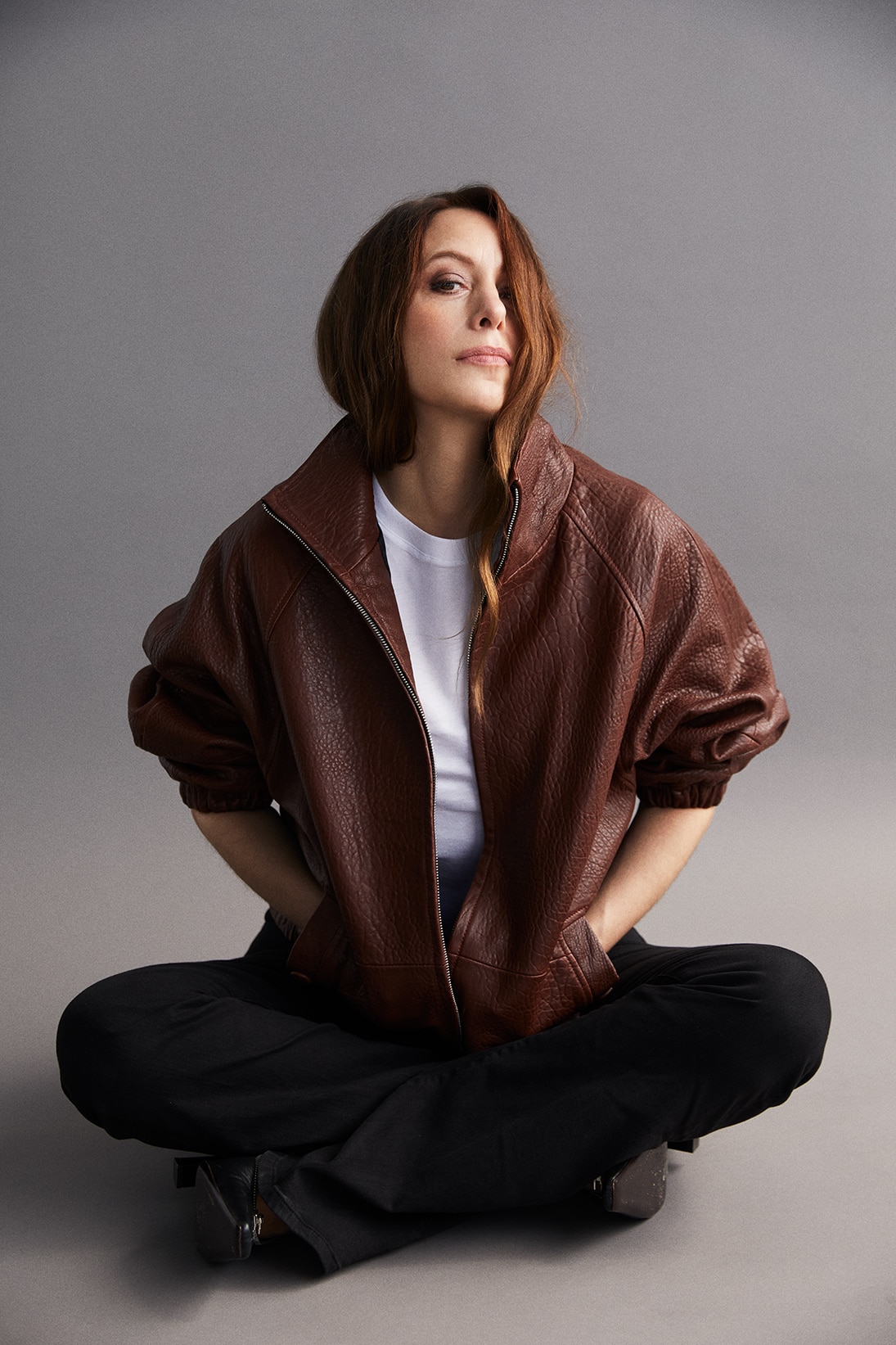
Were all the sets real? They look it…
The sets were absolutely real. I remember walking on set and just thinking My God, this is like something from a Ken Adam set – the man who designed Doctor Strangelove for Stanley Kubrick – I mean, were just incredible.
And they were totally 360 degree sets. The level of detail was extraordinary, right down to the props that you use. The level of craftsmanship was just astonishing.
Sadly, Mark [Strong] and I didn’t really get out and about that much, it was a bit pipe and slippers in the Throne Room for us, but all those exteriors in the Sisterhood are incredible. It’s like something from Tarkovsky’s Stalker, where you see this incredible barren landscape, with a moss creeping back in and nature starting to try to reclaim this space. Seeing that on screen was amazing because all of that was shot in a quarry.
It’s taking me four hours to watch every episode, so I can follow everything. The folklore is so intricate, isn’t it?
I had a similar feeling when I attempted to read the Sisterhood books, which were written by Frank Herbert’s son. Some of it’s quite impenetrable and I have a feeling you have to be quite a devoted sci-fi fan to get through that.
Funnily enough if you leave the folklore to one side, it is still utterly fascinating and you can get completely enthralled in it. Visually, there’s enough to kind of carry you through this story.
But I think it works because in essence it feels more like a drama than a conventional sci fi series. In the sense that it’s really about following the relationships, and family versus this Sisterhood. From Empress Natalya’s perspective, she sees them like a cult.
You can follow these relationship storylines, which I think sometimes in conventional sci fi series that is slightly secondary to the concept. What was interesting for me as an actor was that I never felt like my character was incidental to an incredible concept.
I definitely felt like the directors and the showrunners wanted to put the relationships front and centre even though it takes a little bit of time to ease into those relationships. I think it pays off in the end. I won’t say anything more about that!
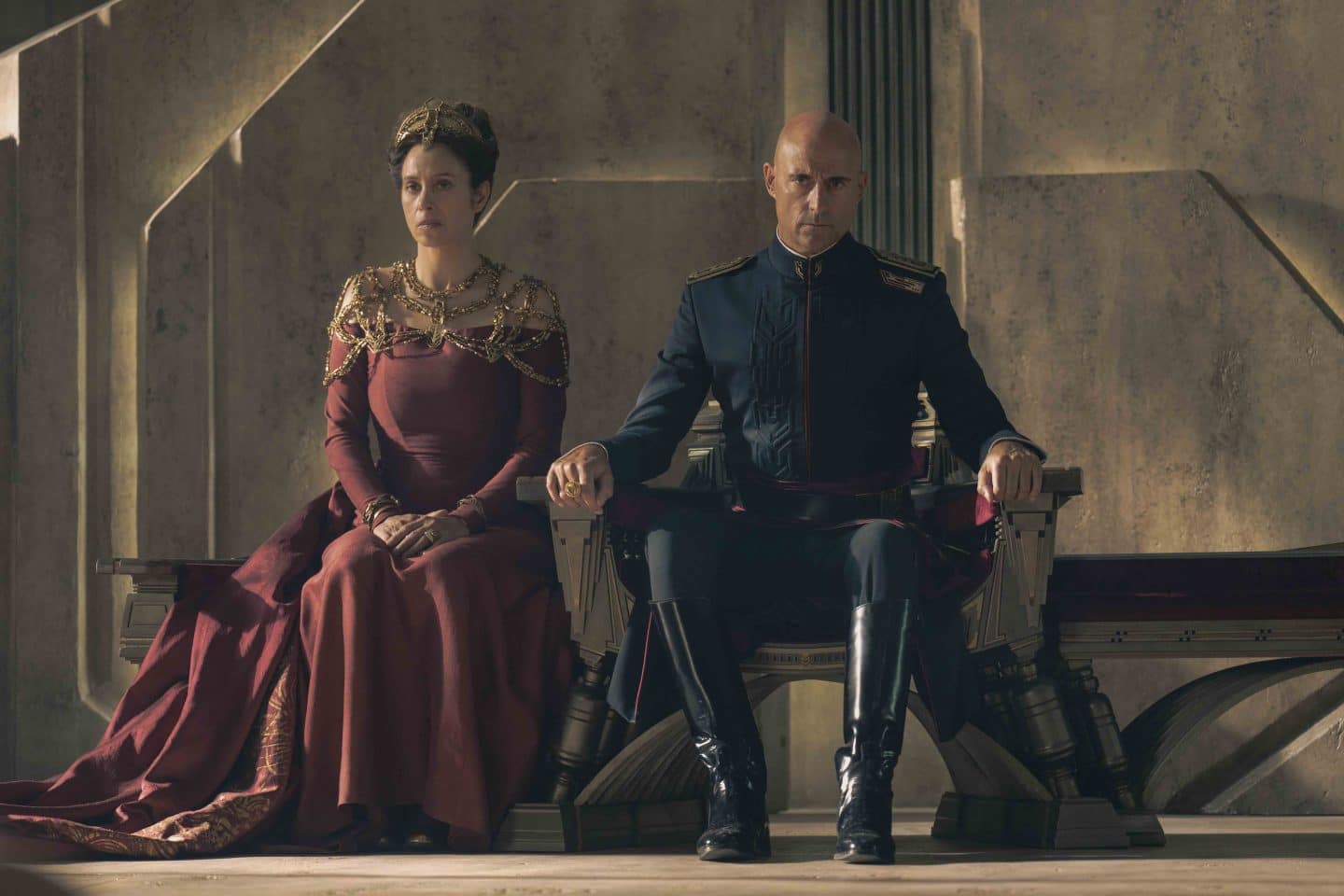
There’s a very human scepticism about Natalya…
I agree, there is something more relatable because she doesn’t have any of that reverence or fear that everybody else seems to regard the Sisterhood with.
Really all she’s concerned about in basic terms is looking at what this cult has done to her husband. They have emasculated his sense of leadership and completely undermined her relationship with him and her authority within what she thought was going to be a partnership of leadership.
And then her thinking, ‘I don’t want the same thing to happen with my daughter.’ With her, it does feel like it’s on a slightly more human scale.
Did you get sent a script or was it all hush hush?
I wasn’t given a script until fairly late on actually. A lot of the time as an actor, you have to do quite a lot of detective work. When you receive scenes you have to work out what exactly is going on without necessarily knowing what the story is, which is challenging in its own way.
I had actually seen the David Lynch film forever ago, which I remember just being completely in awe of. It’s got a bad rep that film now, but I really like it.
It didn’t do well in the States, but I think in Europe, it’s become a real cult classic.
And I remember just thinking it was absolutely incredible, visually, but also with David Lynch’s dark, intriguing underbelly exploration of the sci fi world.
And then obviously the more recent films which I really loved and I’m not at all into mainstream, blockbuster movies.
So fortunately I had that as a reference point for the performances, which is quite restrained. You get a sense that it is all about looks, and what is not said being equally as important as what is said. With so much screenwriting, we’re used to seeing a lot of exposition, and what I like about the Dune universe is that it doesn’t depend on that.
As an actor it’s much more interesting because you get to work in a lot more detail and on a much more subtle level.
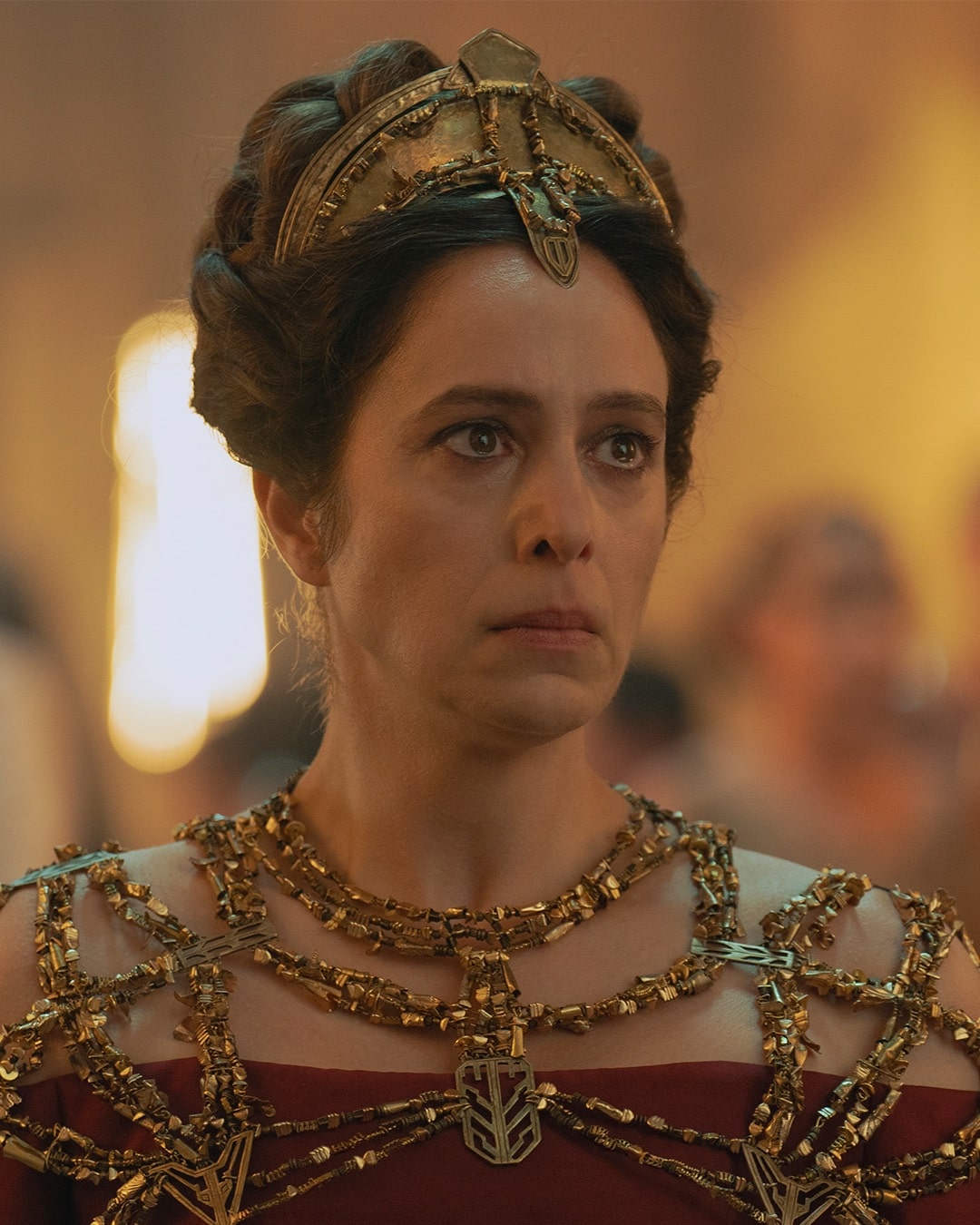
There are so many incredible female characters and without wanting to sound a complete cliche, unfortunately once you’re over 39 as an actress, the dearth of female characters who occupy the centre ground in drama is astonishing.
So that for me was really refreshing and that was one of the reasons that I found this really interesting and exciting because they were approaching the Dune universe from a completely different angle, from the perspective of the women.
I think that’s a bit of a landmark for sci fi, for it to be predominantly female is unusual.
I can’t think of any others…
Well, it definitely passes the Bechdel test [about gender screen representation] because I think in episode one, there’s only a handful of scenes in which there are only men on screen, talking with each other.
When we see Valya and Tula, they’re not talking about men, which is the real test, they’re talking about how do we control the universe.
How important is costume to you when you’re working?
I think costume is really helpful in terms of body language, but at the same time what’s interesting about those costumes is that there’s a lot that’s symbolic. Part of my character’s costume is a combination of jewellery and armour and reminiscent of medieval chainmail, which I think is really interesting in terms of projecting a sense of power or strength.
At the same time, Natalya is also a character who’s somewhat caged, and not really able to use the full extent of her power.
But I think really the challenge with a character like this is to make her feel intimate and real and relatable because otherwise it can feel very remote and abstract. So it was also about getting beyond the formality of those costumes as well.
There’s some incredible performances from Emily Watson and Olivia Williams and also Travis Fimmel as Desmond Hart, who you have some intense scenes with…
Yeah it’s interesting, the dynamic between Empress Natalya and his character.
There’s an interesting identification between them because they’re both outsiders and they both have this aversion to the Sisterhood. They’re drawn to each other in that sense.
What’s interesting about Natalya is that she’s bold enough to see how she can use this man and his mysterious power to her advantage.
There’s a certain ruthlessness there and fearlessness and I think that’s definitely something that they both have in common.
As an actor, you’re very much dependent on what is on the page. I think what’s great about, Alison Schapker’s writing is that she allows for that unconventional power dynamic to be explored.
It’s great to see a female character who’s very much in control in that situation.
How have you seen female representation change much through the years?
It is pretty much the same old nightmare world. There’s been something like a 6% change in the number of women directors in 17 years. This was in Forbes. Over more than a decade and a half, the percentage of women in top directing jobs has not even grown by 10%. In 2007, the percentage of female helmers that year was 2.7%, and over the past 17 years, just 6% of the 1769 directors behind the camera were women.
These figures are not merely data points on a chart. They represent real, talented women working to have sustainable careers in the industry.
It’s really dispiriting and I read somewhere else that the percentage of female writers in the industry is 17%. The percentage of women from diverse backgrounds directing in this industry is apparently something like 3%.
It’s quite striking how little is written about this in the media.
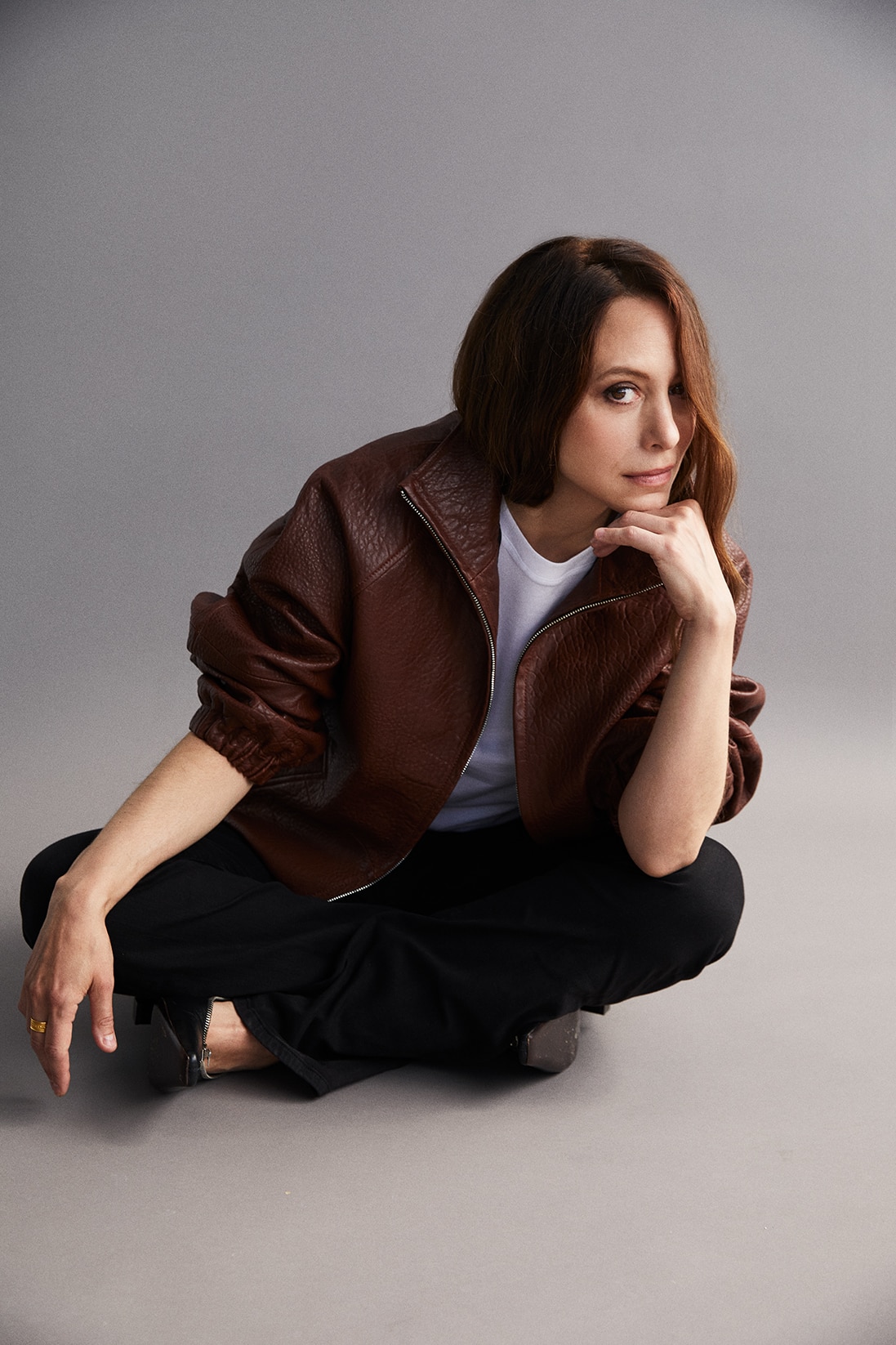
I directed a short film several years ago in which I had 50/50 gender parity on my crew, which very rarely happens on a production.
On Renegade Nell, that Sally Wainwright wrote, we had an incredible gender balance on the film crew. It was remarkable and we obviously had female directors as well. We even had a female grip on set so it can be done.
On Steve McQueen’s Small Axe series which I did, he really was incredible in insisting that the DoPs were from diverse backgrounds and what I saw on set was an amazing parity in terms of diversity.
It’s also true of working class people in our industry who are hugely underrepresented and it’s shocking.
I started in 1987 and the progressive change has been glacial as a female director.
The attitude I am so often confronted with is essentially get back in your lane.
I have 35 years of experience on film sets, it’s actually more than most first time directors will bring to a film set and yet the attitude is yes, but you’re an actress.
The assumption is that as an actress, you’re not aware of what the DoP is doing, for instance.
It’s indicative of our culture, sadly.
It is still the same old industry?
The film industry is predominantly a white male dominated industry and while we do see certain big grossing movies like Greta Gerwig’s Barbie, it’s the exception to the rule.
I think there’s only three women directors who’ve been nominated at the Academy Awards. There’s only been three women who have won the Palme D’or at Cannes.
No, it’s really, sadly changing very little.
What we need is women telling female stories, telling stories from a female perspective.
So from my point of view, being involved in a series like this feels significant. It’s rare that you get two middle aged women as the leads.
That’s quite shocking to hear because from an outsider perspective, I assumed that things were improving somewhat, but clearly not.
No it’s very conservative, and yet half of the audience is female.
It’s just logical that they should also have 50% of the storytelling capacity. That becomes a far more interesting culture.
I tell you the struggle to make films as a female director, my God, you would not believe it. You wouldn’t believe it. It’s extraordinary and there’s a certain kind of prejudice that exists towards actresses getting behind the camera.
Anyway, it’s important to be having that conversation. And actually, I worked a lot with Jimmy McGovern and he’s been amazingly supportive to me both as a writer and as a director. Often it’s men who can champion this change and want to champion this change, which is fantastic.
What are you trying to get made at the moment?
I am writing and also working with two brilliant female producers who run a company called Early Day Films, that produced a film called BAIT. That’s a great film, about the impact on working communities of Brexit, also second homeowners in Cornwall. So I’m working with them on two projects, one of which has Charlotte Rampling in the lead.
That’s what I’m currently involved in, but these things take an awfully long time to come to fruition.
How do you look after your mental health in such a difficult industry?
It’s such an important thing as an actor because so much of what you do is about this idea of not treating the mind and the body as two separate entities. I think that’s a much more sort of holistic approach, which is so important.
It can be running or swimming where you are also maintaining your state of mind. That is so impactful and important.
When I’m working I try and do that.
Finally, what do you hope people will get from Dune: Prophecy?
I hope that a really wide audience will come to it. I hope that it’s going to appeal not only to the fan base, but also to people who also might be encountering the Dune universe for the first time.
And it’s great to see two middle aged women duelling for control of the universe. Maybe it’s something we need in these uncertain times.
Trending

Join The Book of Man
Sign up to our daily newsletters to join the frontline of the revolution in masculinity.




